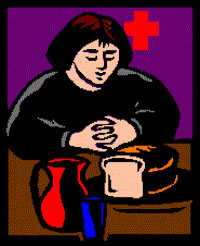
6th Sunday in Ordinary Time Year A
In today’s long gospel reading we continue the ‘Sermon on the Mount’. As we have seen, in this discourse Matthew gathers fundamental teachings of Jesus which constitute a charter for the ‘Kingdom’. Since Matthew’s gospel was written for a community of Jewish converts, it is not surprising that this charter includes teaching concerning the attitude of Jesus to the traditions of old Israel. Understanding this teaching is important for Christians of later generations if we are to understand how we, as the new people of God, are related to the old Israel, and how we should understand the scriptures of the Old Testament. During his earthly life, Jesus was a faithful observer of Old Testament customs – though he was critical of the narrow interpretation given them by the leaders of the Jewish people. Clearly, the challenge he brought to the scribes and Pharisees led to confrontations in which he made it clear that he did not seek an abolition of the traditions of old Israel: his words, ‘not one dot, one little stroke, shall disappear from the Law’ were spoken, no doubt, in such a debate. But the words which follow – ‘until its purpose is achieved’ – help us to understand what he meant when he declared, ‘I have not come to abolish the Law and the prophets (i.e. the Old Testament scriptures and the traditions they fostered), but to complete them’.
The Old Testament was an expression of the Word of God, but it was an expression that was to give way to the absolutely final expression of the divine Word, in the life, death and resurrection of the one who was the divine Word Incarnate. The Old Testament gave witness to the eternal truth of God and God’s designs for humanity, but it was only a witness in hints and shadows, giving rise to boundless expectations concerning the future. These expectations were fulfilled in Jesus Christ; but as Paul tells us in the second reading, this fulfilment was to be a stumbling block to those whose hopes were shaped by expectations of an earthly triumph of God’s people – God’s final self-expressions in the Saviour’s Paschal Mystery was something greater, a ‘hidden wisdom that God predestined to be our glory before the ages began’. The New Law, that ‘completes’ and ‘achieves the purpose’ of the Old Testament’s hints and shadows, must, of course, be promulgated by the divine Lawgiver himself. Jesus intimates this in the remarkable series of instructions he gives to his followers. Referring to the divine commands of the Old Law (‘you have learnt how it was said to our ancestors’) he goes on to declare, as a Lawgiver of the same authority, ‘But I say this to you’. The first Christians loved the Old Testament – its hints and shadows gave them a fuller understanding of what God did for the world in Christ.
John Thornhill sm

